Imagine waking up every day, eagerly anticipating that perfect cup of coffee only to be disappointed. I know this frustration well because, like you, I’ve had my fair share of underwhelming brews and wondered if my coffee maker was to blame. Is there really a difference between coffee makers?
After exploring the depths of caffeine science and speaking with industry experts, I’ve discovered some fascinating truths about the impact of your choice in a coffee maker. Ready for a caffeine-infused adventure? Let’s dive deep into the world of java and uncover what truly sets each type of coffee maker apart!
Key Takeaways
- There are different types of coffee makers, including drip, pour-over, single-serve capsule, French press, espresso, and cold brew.
- Each type of coffee maker has its own unique brewing method and can produce different flavors in the coffee.
- Factors to consider when choosing a coffee maker include taste preferences, preferred brewing method, quantity of coffee needed, and convenience.
- The temperature and extraction process, filter type, pressure levels, and brew time can all impact the taste and quality of the coffee.
Different Types of Coffee Makers
There are multiple types of coffee makers available, including drip coffee makers, pour-over coffee makers, single-serve capsule coffee makers, French press coffee makers, espresso coffee makers, and cold brew coffee makers.
Drip Coffee Maker
A drip coffee maker is easy to use. It’s a popular choice in many homes. You just have to put water and coffee grounds in it. Then, the machine heats up the water. The hot water drips through a filter that has coffee grounds in it.
This makes fresh, hot coffee! Drip makers can make more than one cup of coffee at a time too! But the taste might not be as full or rich as other types of brews. Some love its ease and speed, others feel the flavor lacks depth due to quick brewing times and simple mechanics.
Pour-Over Coffee Maker
Pour-over coffee makers are a popular choice among coffee enthusiasts because they allow for more control and customization over the brewing process. With a pour-over coffee maker, you manually pour hot water over ground coffee beans, allowing them to steep and slowly drip into a carafe or cup below.
This method produces a clean and flavorful cup of coffee with a smooth taste profile.
One advantage of using a pour-over coffee maker is that you can adjust factors like grind size, water temperature, and pouring technique to achieve your desired strength and flavor.
The slower extraction process also allows for more nuanced flavors to come through in the final cup. Additionally, pour-over brewers are typically made from high-quality materials such as glass or ceramic, which can enhance the taste of the coffee.
However, it’s important to note that using a pour-over coffee maker requires some manual effort and time. You have to heat your own water separately and carefully control the pouring speed to ensure even saturation of the grounds.
This brewing method may not be ideal for those who prefer quick and convenient options in their morning routine.
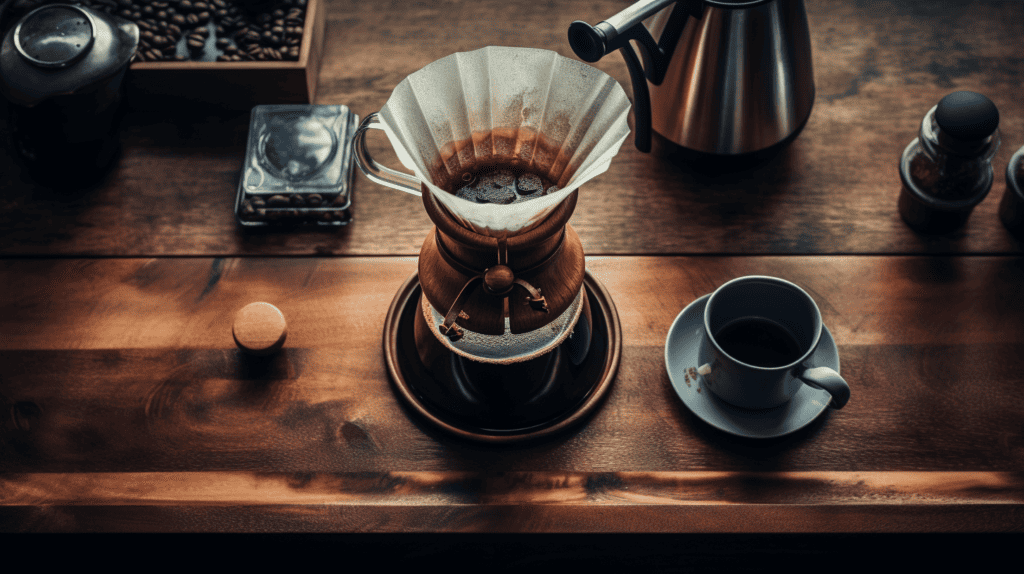
Single-Serve Capsule Coffee Maker
Single-serve capsule coffee makers are quick and convenient to use. They offer a variety of coffee flavors, but the selection is limited to the capsules available for that specific machine.
These machines work by piercing a single-use capsule filled with pre-ground coffee and brewing it directly into your cup. The flavor can be influenced by factors such as the quality of the capsules used, water temperature, and extraction time.
The convenience of these machines comes at a cost as they tend to be more expensive compared to other types of coffee makers.
French Press Coffee Maker
The French press coffee maker is a popular choice among coffee enthusiasts. It’s simple to use and produces a full-bodied flavor. Unlike other coffee makers, the French press doesn’t require any electricity or paper filters.
Instead, it uses a plunger and metal mesh filter to separate the grounds from the brewed coffee. This method allows for more oils and flavors to be extracted from the beans, resulting in a rich and aromatic cup of joe.
The French press also gives you control over brewing time and water temperature, allowing you to customize your brew according to your taste preferences. However, it does take some practice to perfect the technique and achieve consistent results.
Espresso Coffee Maker
As a coffee enthusiast, I know that the espresso coffee maker is one of the most popular types of coffee machines. It uses advanced brewing technology to produce intense and flavorful shots of espresso.
The high pressure generated by these machines extracts rich oils from the coffee grounds, resulting in a concentrated and robust flavor. However, it’s important to note that espresso makers can be more expensive and complex than other coffee makers.
So, if you’re looking for convenience or a milder taste, you might want to consider other options. But if you’re after bold and authentic espresso flavor, investing in an espresso coffee maker could be worth it!
Cold Brew Coffee Maker
I love my cold brew coffee, and a cold brew coffee maker is essential for making this smooth and refreshing drink. Cold brew coffee makers use a different brewing method than other coffee makers.
Instead of using hot water, they steep the grounds in cold or room temperature water for an extended period, usually around 12-24 hours. This slow extraction process results in a less acidic and smoother cup of coffee.
The design of a cold brew coffee maker also typically includes a large container with a filter or mesh basket to hold the ground coffee while allowing the water to pass through. So if you’re looking to enjoy rich and flavorful cold brewed coffee at home, investing in a dedicated cold brew coffee maker is definitely worth it!
Factors to Consider When Choosing a Coffee Maker
When choosing a coffee maker, consider your taste preferences, preferred brewing method, quantity of coffee needed, and convenience.
Taste preferences
When it comes to choosing a coffee maker, taste preferences play a crucial role. Different types of coffee makers can result in variations in the flavor of your brew. For example, drip coffee makers tend to be convenient but may sacrifice some flavor.
On the other hand, pour-over coffee makers offer customizable taste but require manual effort. Single-serve capsule coffee makers are quick and convenient but limited in selection.
French press coffee makers provide a full-bodied flavor but require more time and effort. Finally, espresso machines offer an intense flavor but come with higher cost and complexity.
Brewing method
The brewing method you choose can have a big impact on the taste of your coffee. Different coffee makers use different brewing methods, which affect factors like temperature, extraction, and brew time.
For example, drip coffee makers use simple technology to brew coffee quickly and conveniently. On the other hand, French press coffee makers require more time and effort but yield a full-bodied flavor.
Espresso machines use high-pressure levels to extract intense flavors from finely ground beans. Each brewing method has its pros and cons, so it’s important to consider which one suits your preferences when choosing a coffee maker.
Quantity of coffee needed
When choosing a coffee maker, it’s important to consider how much coffee you typically need. Think about whether you usually make just a cup or two for yourself, or if you often need to brew larger quantities for guests or family members.
Some coffee makers are designed specifically for single servings, while others can brew multiple cups at once. Keep in mind that certain types of coffee makers may not be able to accommodate large volumes of coffee, so it’s important to choose one that suits your specific needs in terms of quantity.
The quantity of coffee needed is essential because different types of machines have varying capacities and brewing methods. For instance, single-serve capsule coffee makers are convenient and quick but may not be ideal if you consistently require more than one cup at a time.
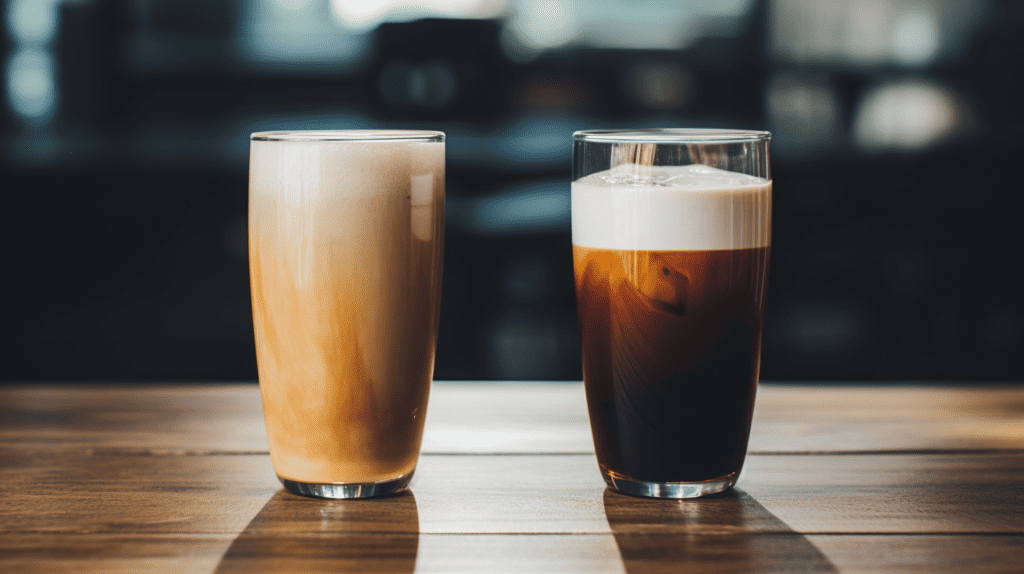
Convenience
Convenience is an important factor to consider when choosing a coffee maker. Some machines offer quick and easy brewing, like the single-serve capsule coffee makers. These are perfect if you’re always on the go and want a hassle-free experience.
On the other hand, drip coffee makers are also convenient because they can make larger quantities of coffee at once. So, if you enjoy hosting gatherings or need multiple cups in the morning, this type might be a better fit.
Ultimately, it’s about finding a balance between convenience and your specific needs as a coffee lover.
Differences in Taste and Brewing Methods
Different coffee makers produce varying tastes and brewing methods, influenced by factors such as temperature and extraction, filter type, pressure levels, and brew time.
Temperature and extraction
The temperature and extraction process play a significant role in the taste of your coffee. Different coffee makers have different temperatures at which they brew, ranging from around 195 to 205 degrees Fahrenheit.
The higher the temperature, the more flavor is extracted from the beans. Additionally, extraction refers to how much flavor compounds are dissolved into the water during brewing. A longer extraction time can result in a stronger and more robust cup of coffee, while a shorter extraction time may produce a milder taste.
It’s important to consider these factors when choosing a coffee maker that suits your preferences.
Filter type
When it comes to coffee makers, the filter type can make a difference in the taste of your brew. Different types of filters, such as paper filters or metal mesh filters, can affect the flavor and clarity of your coffee.
Paper filters tend to remove more oils from the coffee grounds, resulting in a cleaner and brighter taste. On the other hand, metal mesh filters allow more oils to pass through, giving the coffee a richer and fuller-bodied flavor.
It’s important to consider your personal preference when choosing a coffee maker based on filter type.
Pressure levels
The pressure level of a coffee maker plays a role in the taste and quality of your coffee. Different types of coffee makers have varying pressure levels that affect how the water flows through the coffee grounds.
For example, espresso machines use high pressure to force hot water through tightly packed coffee grounds, resulting in a strong and concentrated flavor. On the other hand, drip coffee makers use lower pressure for a slower extraction process, producing a milder and more balanced taste.
So, when choosing a coffee maker, consider the type of brew you prefer and whether you enjoy bold or mellow flavors.
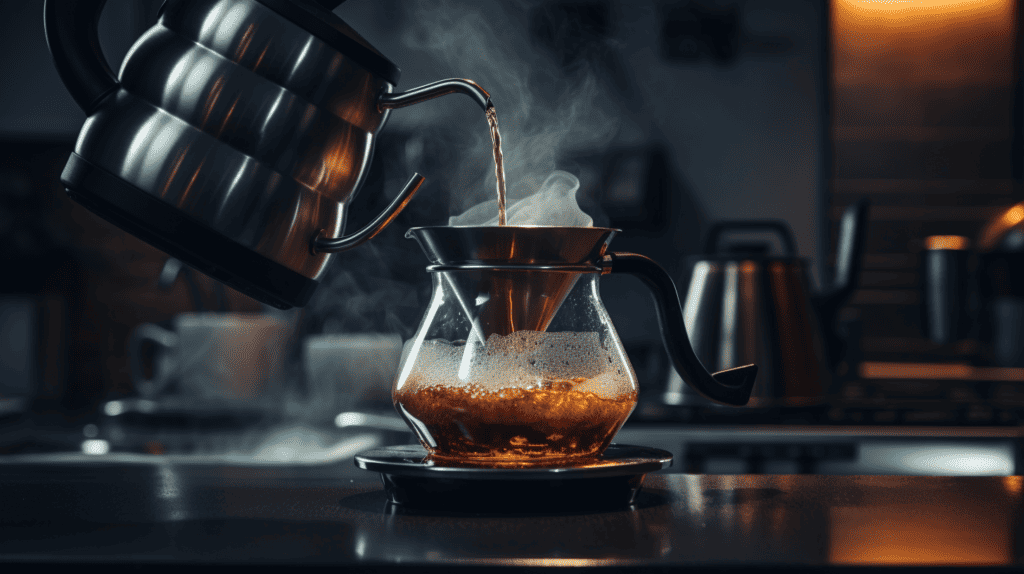
Brew time
The brew time of a coffee maker refers to how long it takes for the machine to make your coffee. Different types of coffee makers have varying brew times, which can affect the taste and quality of your brew.
For example, drip coffee makers typically have a faster brew time compared to French press or pour-over coffee makers. This is because drip machines use hot water that drips through a filter, while French press and pour-over methods involve slower extraction processes.
The longer the brew time, the more time the water has to extract flavors from the grounds, resulting in a potentially stronger and more robust cup of coffee. So if you prefer a quick cup in the morning, a drip machine would be ideal.
Pros and Cons of Various Coffee Makers
Drip coffee makers are convenient but may sacrifice flavor, while pour-over coffee makers offer customizable taste with manual effort. Single-serve capsule coffee makers provide quick convenience but have limited selection.
French press coffee makers offer full-bodied flavor but require more time and effort. Espresso machines give intense flavor but come with a higher cost and complexity. Cold brew coffee makers deliver smooth flavor but require advanced planning.
Explore the differences to find your perfect match!
Drip coffee makers: convenient but may sacrifice flavor
I love using drip coffee makers because they are so convenient and easy to use. You pour the water in, add your coffee grounds, press a button, and wait for the delicious aroma to fill your kitchen.
However, one thing to keep in mind is that drip coffee makers may sacrifice some flavor compared to other brewing methods. This is because the water temperature used in drip coffee makers may not be as hot as other methods like pour-over or French press, which can affect the extraction of flavors from the beans.
Additionally, some people find that the paper filters used in drip machines can absorb oils and flavors from the coffee, resulting in a less intense taste. Despite these potential drawbacks, I still find that drip coffee makers are a great option for those who value convenience but don’t want to compromise too much on taste.
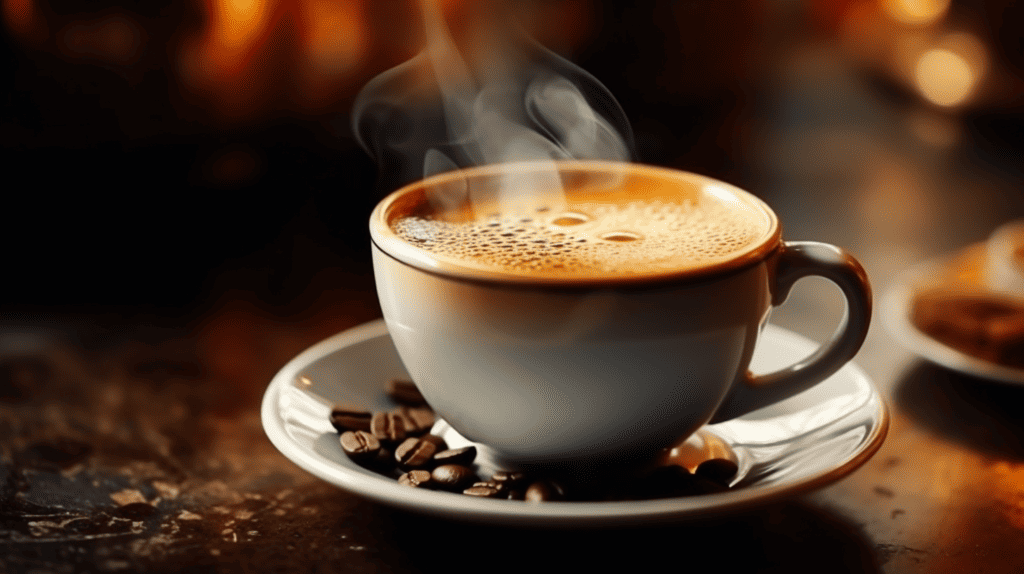
Pour-over coffee makers: customizable taste but requires manual effort
Pour-over coffee makers offer the advantage of a customizable taste. With this method, you have full control over the brewing process, from water temperature to pouring technique. This allows you to extract unique flavors and aromas from your coffee beans.
However, it does require some manual effort on your part. You’ll need to pour hot water over the coffee grounds in a slow, circular motion. While it may take a bit more time and attention compared to other types of coffee makers, many coffee enthusiasts find that the extra effort is worth it for the rich and personalized flavor they can achieve with pour-over brewing.
Single-serve capsule coffee makers: quick and convenient but limited in selection
I enjoy using single-serve capsule coffee makers because they are fast and easy to use. They make a cup of coffee quickly, which is great for busy mornings or when I’m in a hurry. The convenience is unmatched, as I can simply pop in a pre-filled coffee capsule and press a button to get my coffee ready.
However, one downside is that these machines are limited in the types of coffees available. I have fewer options compared to other brewing methods like pour-over or French press. So while they offer speed and convenience, it’s important to consider whether having a wider selection of coffee flavors is important to you before choosing this type of machine.
French press coffee makers: full-bodied flavor but requires more time and effort
I love using French press coffee makers because they give my coffee a rich and full-bodied flavor. The immersion brewing method used in these coffee makers allows the coffee grounds to steep in hot water for several minutes, resulting in a strong and robust taste.
However, it’s important to note that using a French press requires more time and effort compared to other types of coffee makers. You need to heat the water separately, grind your own beans, and then manually plunge the filter down to separate the brewed coffee from the grounds.
While it may take a bit longer to make your cup of joe with a French press, I believe the delicious flavor is well worth it.
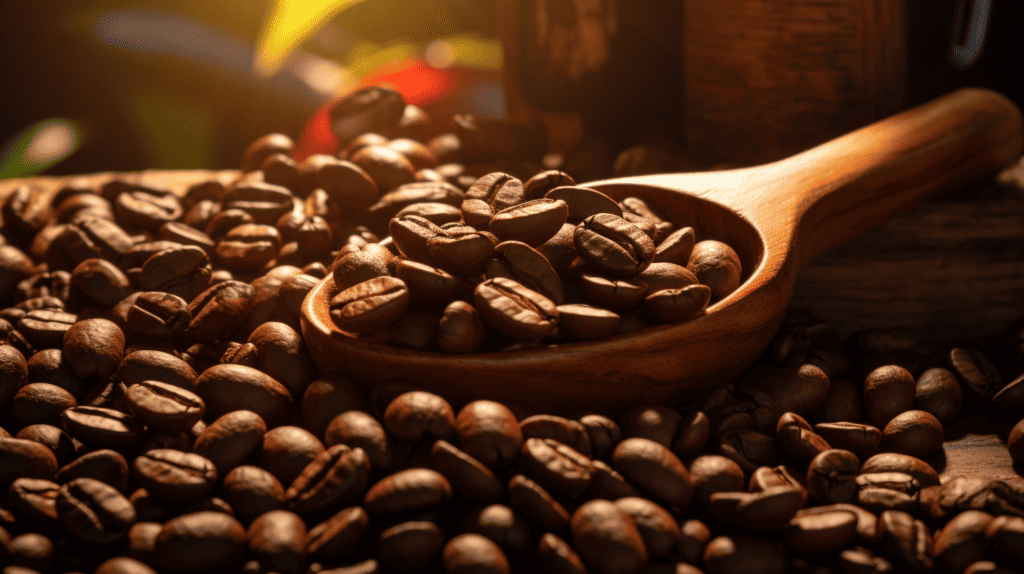
Espresso coffee makers: intense flavor but higher cost and complexity
Espresso coffee makers are known for their intense flavor, making them a favorite among coffee enthusiasts. The unique brewing process of espresso machines extracts the rich flavors and aromas from the coffee beans, resulting in a strong and concentrated cup of coffee.
However, it’s important to note that espresso makers can be more expensive and complex compared to other types of coffee makers. They often require special equipment such as a grinder and tamper, as well as some knowledge of espresso brewing techniques.
Despite the higher cost and complexity, many people find that the flavorful and robust taste of espressos makes it worth the investment.
Cold brew coffee makers: smooth flavor but requires advanced planning
I love cold brew coffee because it has a smooth flavor. However, making cold brew requires some advanced planning. You can’t just make it on the spot like regular hot coffee. With cold brew, you have to steep your coffee grounds in water for at least 12 hours or overnight.
This slow brewing process extracts the flavors more gently and results in a less acidic and smoother cup of coffee. So if you’re looking for a delicious and mellow alternative to hot brewed coffee, give cold brew a try – just plan ahead!
Conclusion: Is There Really A Difference Between Coffee Makers
When it comes to coffee makers, there really is a difference. The type of coffee machine you choose can affect the taste and quality of your brew. Consider factors like brewing method, convenience, and personal preferences to find the perfect coffee maker for you.
Happy brewing!
What Type of Ground Coffee is Best for Different Types of Coffee Makers?
Choosing the right ground coffee for your coffee maker is essential to deliver the ultimate flavor experience for coffee lovers. For a drip coffee maker, medium ground coffee works best, as it extracts rich flavors while preventing clogs. For espresso machines, a fine grind ensures stronger shots. French presses prefer a coarse grind to maintain a robust taste. Understanding these variations helps create the perfect cup for every coffee enthusiast.
FAQs on Is There Really A Difference Between Coffee Makers
1. Are there any differences between coffee makers?
Yes, there are different types of coffee makers such as drip, espresso, French press, and single-serve machines that vary in brewing methods and features.
2. What is the best type of coffee maker to use?
The best type of coffee maker depends on your personal preferences and needs. Drip coffee makers are popular for everyday use, while espresso machines offer a stronger brew. It’s important to consider factors like convenience, budget, and desired taste when choosing a coffee maker.
3. Do expensive coffee makers make better-tasting coffee?
Not necessarily – the price of a coffee maker does not guarantee better-tasting coffee. Factors like the quality of beans, water temperature, grind size, and brewing technique also play a significant role in the final taste of your cup.
4. Can I use any kind of ground coffee in all types of coffee makers?
Most types of ground coffees can be used in various types of brewers; however, certain machines may require specific coarseness or fineness levels for optimal extraction. It’s recommended to check the user manual or follow manufacturer guidelines for compatibility with different grinds.

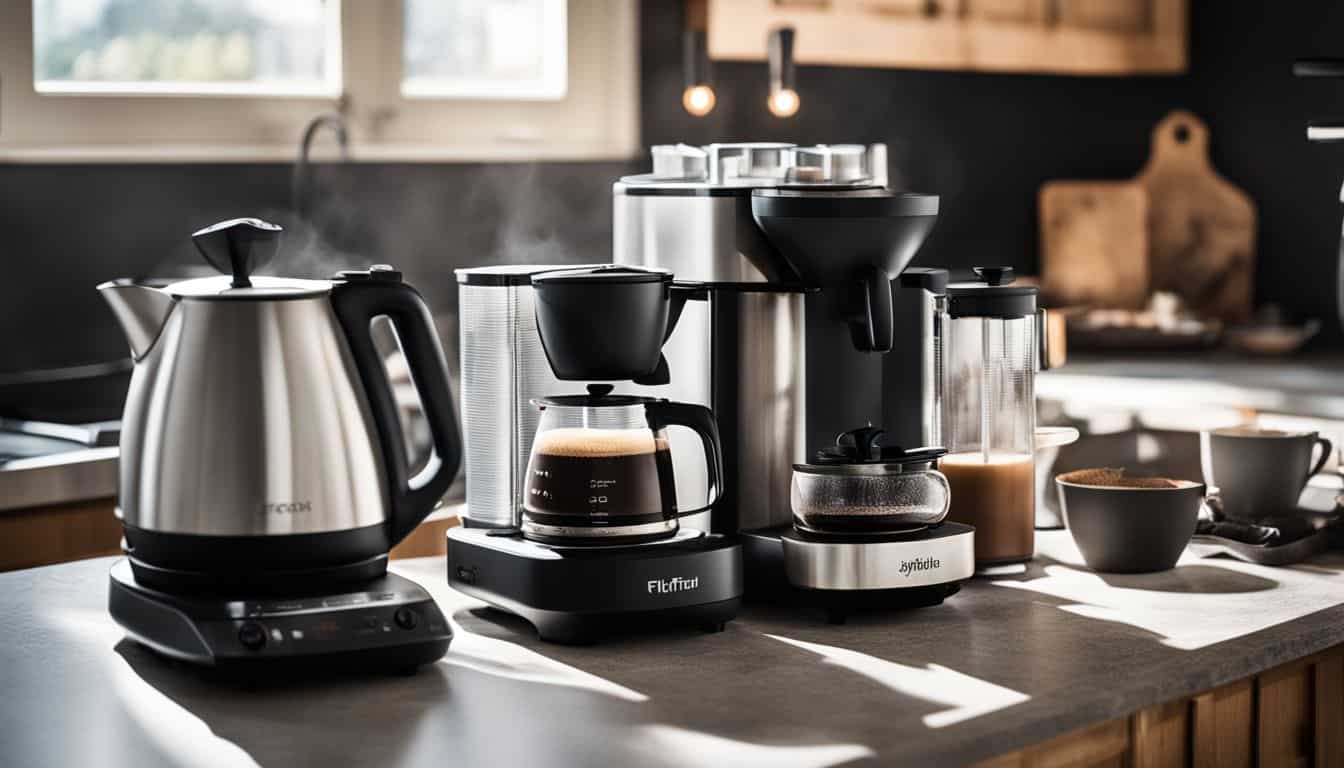
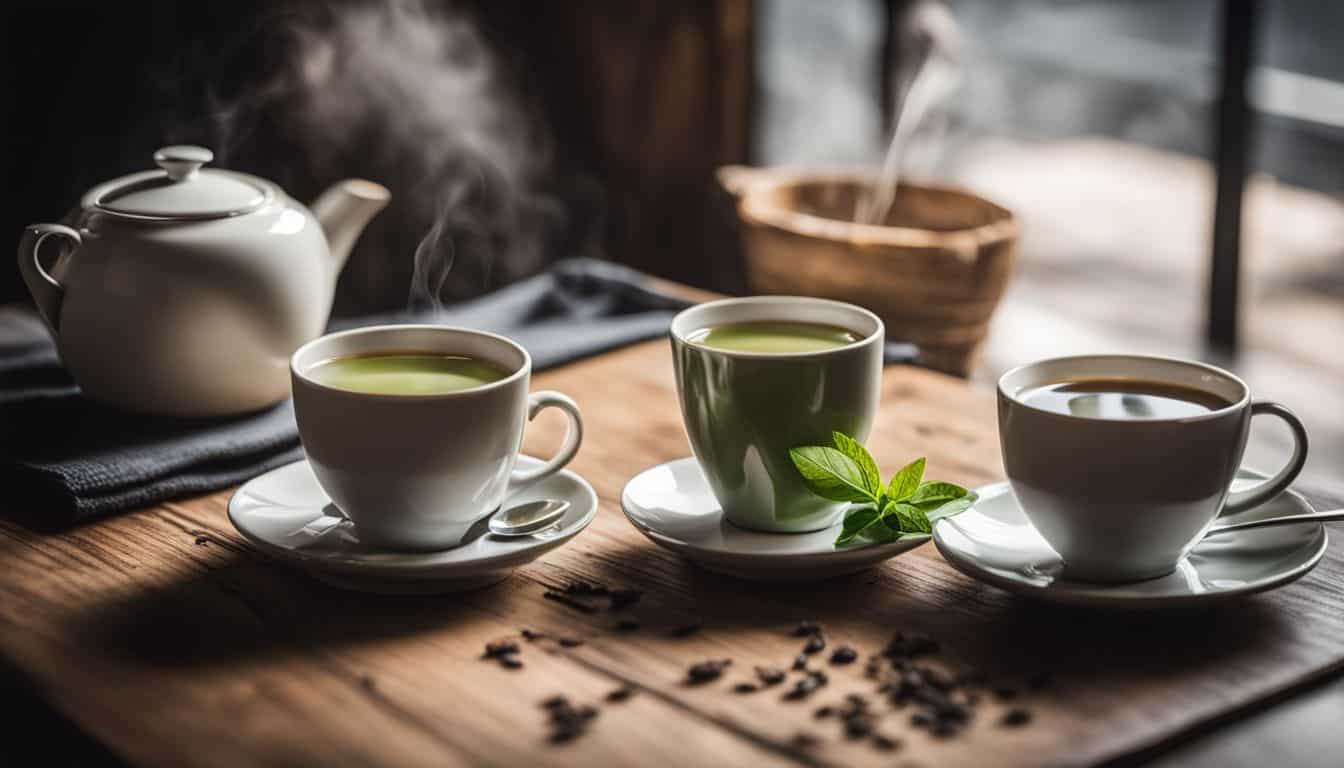

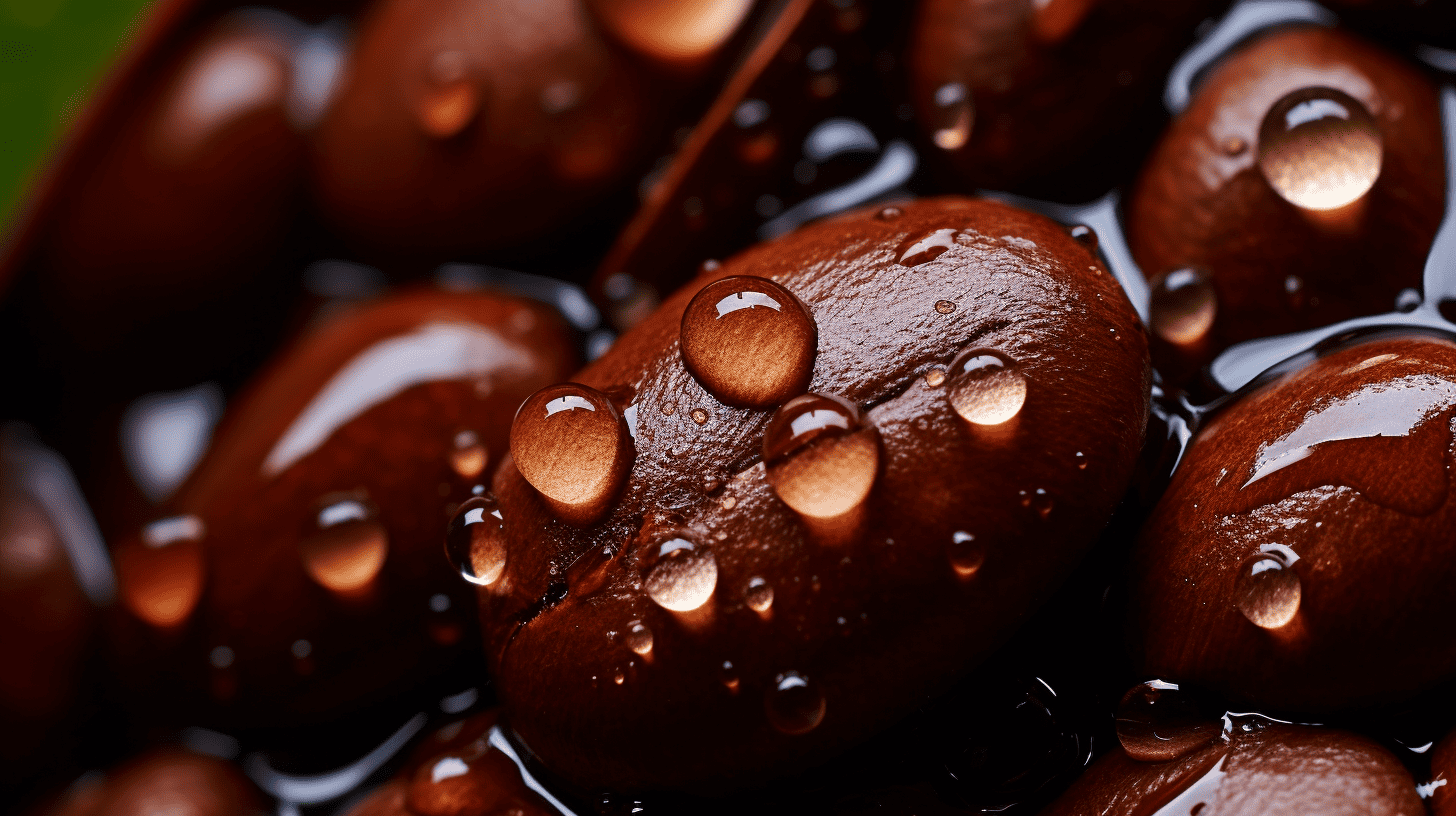
Leave a Reply